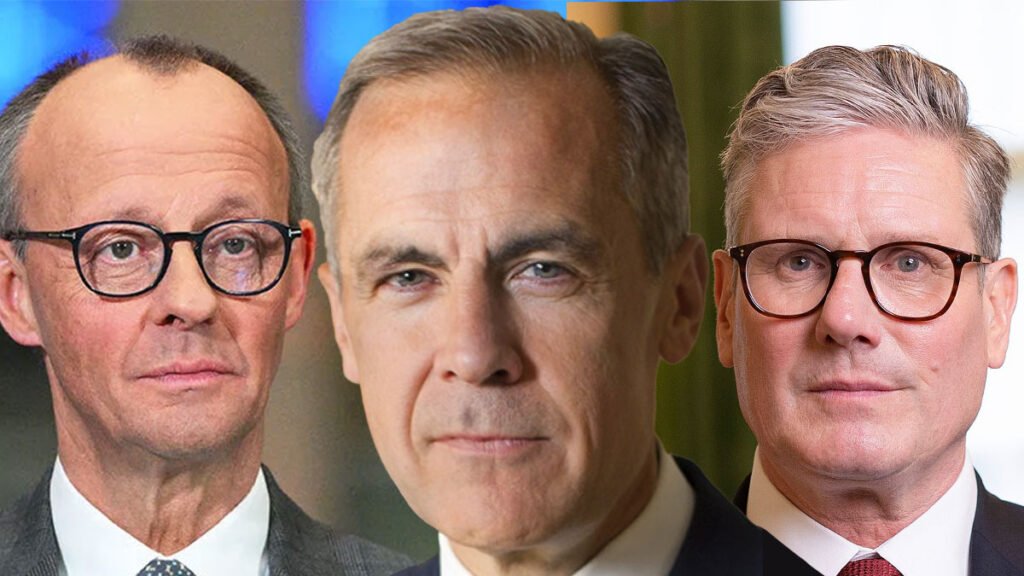The Bankruptcy of Centrism: France’s Government Collapses for Refusing to Inflict More Pain
What does it tell us about the bankruptcy of European centrism when a government falls not because it failed to address poverty, inequality, or the energy crisis, but because it could not convince parliament to inflict more suffering on ordinary citizens? François Bayrou’s confidence vote defeat represents more than another French political crisis, it exposes the fundamental contradiction at the heart of liberal governance across Europe.
Bayrou’s overwhelming 364-194 defeat came after he demanded parliamentary backing for €44 billion in austerity cuts. The irony would be amusing were it not so tragic: a prime minister who lasted just nine months, three times longer than his predecessor, because he managed to delay the inevitable reckoning with neoliberal orthodoxy for a few additional weeks. This is what passes for political stability in Emmanuel Macron’s France.
The economics underlying this crisis tell a familiar story of elite priorities divorced from public need. France’s public spending accounts for 57% of GDP, financing healthcare, welfare, and those “generous” pension and unemployment benefits that financial markets find so offensive. Yet this spending represents not profligacy but civilisation, the basic compact between state and citizen that distinguishes a functioning society from a corporate playground.
When Bayrou proclaimed that “expenses will continue to rise, and the burden of debt, already unbearable, will grow heavier,” he revealed the fundamental delusion that has captured European governance. Debt becomes “unbearable” only when we accept that financiers’ returns matter more than pensioners’ dignity, that bond markets deserve greater consideration than healthcare workers, that abstract fiscal ratios carry more weight than concrete human needs.
What France’s €3.35 trillion debt actually represents. At 114% of GDP, it appears alarming until we recognise that this debt is largely owed to French institutions and citizens themselves. It represents not foreign bondage but domestic investment, money spent on infrastructure, education, healthcare, and social protection that creates the foundations for genuine prosperity. Yet Bayrou and his centrist allies speak of this investment as if it were a criminal burden rather than the price of civilisation.
The broader European context makes this tragedy even more stark. In February this year, Germany, supposedly the EU’s anchor of stability, witnessed its own governmental collapse as mainstream parties prove incapable of addressing the crises they helped create. The Alternative for Germany’s surge to 20.8% support represents not an aberration but a predictable response to decades of technocratic governance that prioritises market logic over democratic accountability.
Olaf Scholz’s SPD securing just 16.4% of the vote, its worst performance in decades, while the far-right doubles its support tells us everything we need to know about social democracy’s surrender to neoliberal orthodoxy. When supposedly left-wing parties become indistinguishable from their conservative opponents on economic policy, voters inevitably seek alternatives, however poisonous those alternatives might prove.

Macron’s role in creating this crisis cannot be understated. His decision to call snap elections after his party’s European Parliament defeat demonstrated the same arrogant disconnection from political reality that has characterised his entire presidency. Having positioned himself as the rational centre against extremist populism, he has instead overseen the systematic strengthening of Marine Le Pen’s National Rally while reducing his own movement to irrelevance.
The president now faces an impossible choice: continue appointing centrist prime ministers who will face identical parliamentary arithmetic, or acknowledge that his entire political project has failed. His consideration of “moderate socialists” or “technocrats” reveals a man still living in the fantasy that minor personnel changes can solve structural political contradictions.
But this crisis extends far beyond French domestic politics. It represents the latest manifestation of liberalism’s inability to address the multiple crises, economic, environmental, social, that define our historical moment. Across Europe, centrist parties cling to the same failed prescriptions: austerity during recession, tax cuts for the wealthy, deregulation of labour markets, and privatisation of public services. When these policies predictably fail to deliver prosperity or security, they blame voters for insufficient appreciation of technocratic wisdom.
The alternative exists, though European elites refuse to acknowledge it. France could increase taxes on wealth and capital, invest in green transition and public services, and demonstrate that prosperity flows from public investment rather than private accumulation. Such policies would reduce inequality, create meaningful employment, and restore faith in democratic governance. They would also require challenging the European Union’s constitutional commitment to neoliberal orthodoxy, a challenge that mainstream politicians across the continent refuse to contemplate.
Instead, we witness the same dreary carousel of failed leaders implementing identical policies while expecting different results. Bayrou’s defeat will lead to another centrist appointment, another confrontation with parliamentary arithmetic, another government collapse. This cycle will continue until French voters conclude that democracy itself is meaningless, a conclusion that benefits only those who profit from social breakdown.
The French parliament’s rejection of austerity represents a rare moment of democratic clarity in a continent increasingly governed by unelected technocrats and market pressures. Yet without a coherent progressive alternative that addresses the root causes of economic instability, this rejection will likely benefit only the far-right forces that offer simple answers to complex problems.
The tragedy is not that Bayrou’s government fell, but that its replacement will almost certainly propose identical policies with marginally different rhetoric. Until European progressives find the courage to challenge the institutional frameworks that make such failures inevitable, we will continue witnessing the same spectacle: elected governments falling because they cannot reconcile democratic mandates with market demands.
France’s crisis is Europe’s crisis, and Europe’s crisis is democracy’s crisis. Until there is a transformation of the economic structures that create these recurring disasters, we will watch democracy being hollowed out from within while authoritarian alternatives fill the vacuum. Bayrou’s defeat should mark not another centrist realignment but the beginning of genuine political transformation. Whether it does depends on forces far beyond the Élysée Palace’s walls.
For Macron, the problems multiply without respite. Napoleon once observed: “I’d rather have lucky generals than good ones.” In Macron’s case, he can find neither, only a succession of failed prime ministers presiding over a republic that grows more ungovernable and unforgiving by the day.
Support Independent Journalism Today
Our unwavering dedication is to provide you with unbiased news, diverse perspectives, and insightful opinions. We're on a mission to ensure that those in positions of power are held accountable for their actions, but we can't do it alone. Labour Heartlands is primarily funded by me, Paul Knaggs, and by the generous contributions of readers like you. Your donations keep us going and help us uphold the principles of independent journalism. Join us in our quest for truth, transparency, and accountability – donate today and be a part of our mission!
Like everyone else, we're facing challenges, and we need your help to stay online and continue providing crucial journalism. Every contribution, no matter how small, goes a long way in helping us thrive. By becoming one of our donors, you become a vital part of our mission to uncover the truth and uphold the values of democracy.
While we maintain our independence from political affiliations, we stand united against corruption, injustice, and the erosion of free speech, truth, and democracy. We believe in the power of accurate information in a democracy, and we consider facts non-negotiable.
Your support, no matter the amount, can make a significant impact. Together, we can make a difference and continue our journey toward a more informed and just society.
Thank you for supporting Labour Heartlands









